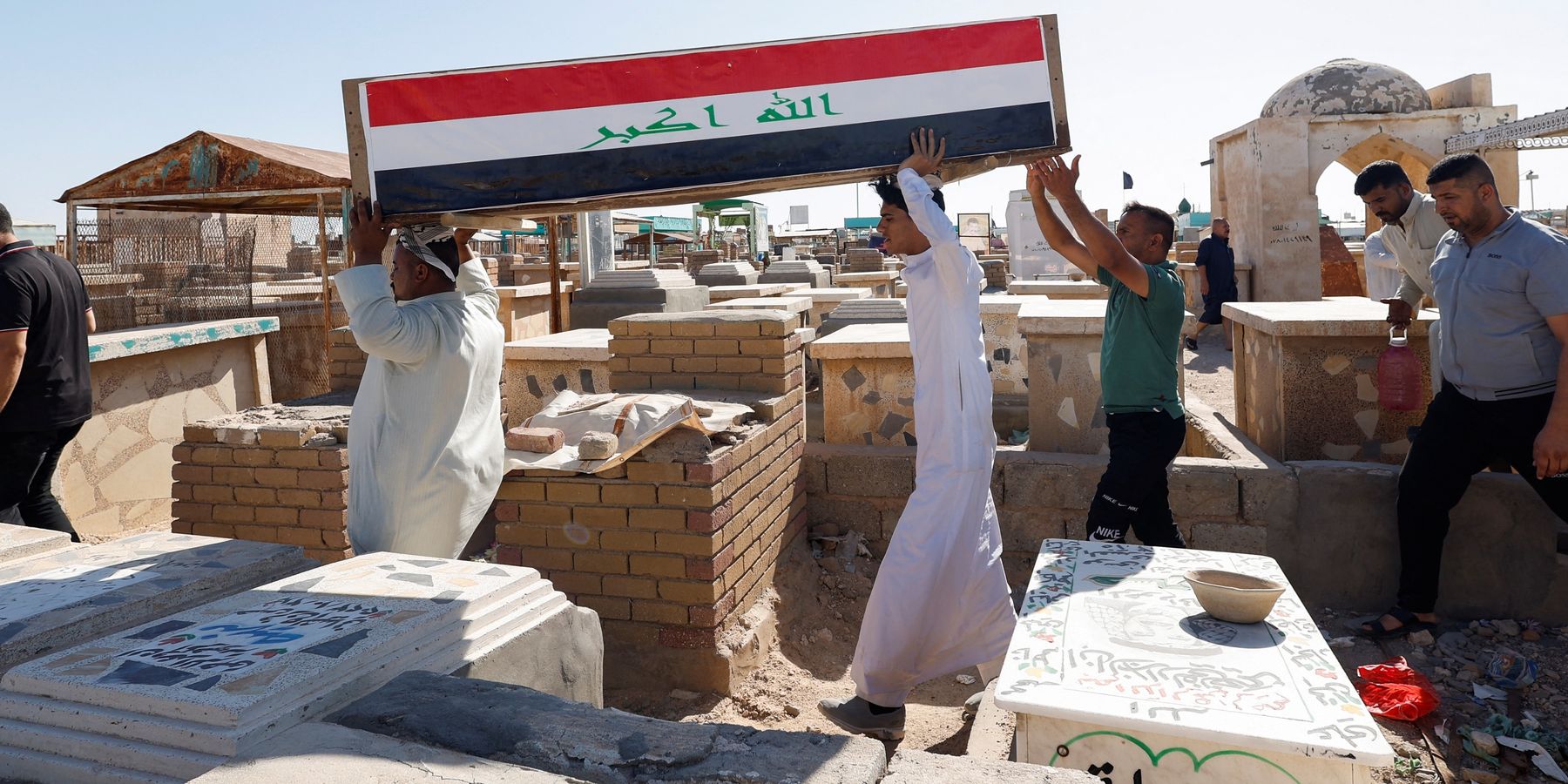Recent developments suggest that the ISIS threat has metastasized to a level that the United States believes requires stronger action.
In the span of less than a week, U.S. forces conducted two major operations targeting the group’s forces in Syria and Iraq. A broad joint U.S.-Iraqi operation was launched in Anbar province that reportedly killed at least 14 ISIS militants and was followed by the capture of an ISIS leader accused of assisting members of the terrorist group who had escaped detention in Syria.
The two operations indicate that the U.S. military is taking a more aggressive approach to the terrorist group than in recent years. A report by the New York Times described the Anbar operation, with over 100 U.S. Special Operations forces taking part, as one of the largest-scale anti-ISIS offensives conducted in Iraq since the fall of the caliphate in 2019. American commandos reportedly led the initial raid of the operation during which seven U.S. soldiers suffered injuries.
That these troops’ lives were essentially put at risk testifies to how seriously decision makers in Washington are now taking the ISIS threat, particularly as Washington has reportedly reached agreement with Baghdad that it will withdraw hundreds of the roughly 2,500 U.S. troops currently deployed in Iraq over the next year with a full withdrawal (albeit with a small contingent left in the Kurdish area of Erbil) to be completed by the end of 2026.
“The (Biden) administration believes the U.S. has a strategic stake in Iraq’s stability and that ISIS threatens that stability,” according to Steven Simon, a senior research fellow at the Quincy Institute who served as a senior director for the Middle East and North Africa on the National Security Council under former President Barack Obama.
“It is noteworthy mostly because (Anbar operation) was launched as the U.S. and Iraq had agreed on the overall reduction in U.S. troop levels and on a training mission for remaining troops,” he added in an email interview with RS.
However, the Anbar offensive appears to have been more than just about preserving the stability of Iraq. According to the Times report, the primary target was a high-ranking ISIS commander responsible for directing the group’s operations in the Middle East and Europe.
Both these regions have recently witnessed an uptick in ISIS-related activity targeting close U.S. allies. The terror group claimed responsibility for an attack on a Shiite mosque in Oman last July that resulted in the death of six people. It marked the first time that the Gulf nation fell victim to ISIS-related terrorism.
Last month, an ISIS-claimed knife attack in Germany, which the alleged perpetrator claimed was motivated by Israel’s ongoing war on Gaza, resulted in the deaths of three people. In the same month, the CIA and Austrian authorities reportedly thwarted an ISIS-linked plot to stage an attack during a Taylor Swift concert in Vienna.
The capture of ISIS leader Khaled Ahmad al-Danda, the man accused of helping escaped ISIS detainees in Syria, adds to the impression that Washington is taking the group’s ambitions more seriously, as indicated by the statement released by CENTCOM following the operation. It included an unusually stark warning from CENTCOM’s commander, Gen. Michael Kurilla, regarding the potential threat posed by ISIS prisoners held in Syria.
“Over 9,000 ISIS detainees remain in over 20 SDF detention facilities in Syria, a literal and figurative ‘ISIS Army’ in detention,” noted Kurilla, who further cautioned that “if a large number of these ISIS fighters escaped, it would pose an extreme danger to the region and beyond.”
The general’s reference to an “’ISIS Army’ in detention” highlights the concern over the possibility that the group is planning to once again attempt to seize large swaths of territory, plans that would require significant additional manpower. Currently the number of ISIS foot soldiers in Iraq and Syria is estimated at around 2,500.
“CENTCOM undoubtedly is attuned to the possibility that if several hundred ISIS detainees were to become free, they could be part of a force that would seize territory,” explained Paul Pillar, a former top counterterrorism and Middle East analyst for the Central Intelligence Agency, in an interview with RS.
“The history of the ISIS ‘caliphate’ that comprised large parts of Iraq and Syria is not that far in the past,” added Pillar, currently a senior non-resident fellow at the Quincy Institute.
The Gaza Link
The growing threat posed by ISIS may be related to the ongoing war waged by Israel against Hamas in Gaza. A report released by U.S. governmental agencies at the beginning of the year found that ISIS attacks in Iraq and Syria were at record lows in the last quarter of 2023 when the Gaza war was in its early stages.
This situation changed drastically, however, as the Gaza war continued over the following months, with CENTCOM announcing in July that, if current trends in Syria and Iraq hold, ISIS will likely more than double the total number of attacks in 2024 that it claimed in 2023.
The United Nations also noted an uptick in ISIS hostilities during this same period in a report it released in July. According to the report, the terror group intensified its attacks in Syria starting early this year, with March witnessing some of the worst violence instigated by ISIS in the country since the fall of the caliphate (while also noting the operational tempo in Iraq remained contained) five years ago.
It would appear that this sharp rise in ISIS activity may be, at least in part, attributable to the regional reaction to the Gaza war. According to one Pentagon assessment, attacks by Iranian-backed groups on U.S. forces stationed in Syria and Iraq after the Gaza war began last October had hampered operations against ISIS.
Perhaps even more important, the conflict in Gaza seems to have helped ISIS by diverting the resources of Iran and its Shiite allies in Iraq and Syria that were instrumental in the degradation and defeat of ISIS. The Institute for the Study of War noted that Iran and allied groups, notably Hezbollah, have redeployed some of their forces from deep inside Syria, where they were more focused on ISIS and other Sunni extremist groups, to southern Lebanon and areas closer to the Israeli-occupied Golan Heights to put pressure on Israel to cease its offensive in Gaza.
According to a brief released by the Washington-based Institute just days after the start of the war in Gaza last October, ISIS stood to benefit from these redeployments, as they reduced pressure on the group within Syria, enabling it to rebuild and take a more aggressive stance.
In that respect, Washington’s continuing “iron-clad” support for Israel in its war in Gaza may be undermining its counter-terrorism efforts in Syria and Iraq.
Indeed, as long as the Gaza war continues, Iran and its allies in Syria and Iraq, which have opposed ISIS since its inception, will prioritize the conflict with Israel over other considerations, effectively removing a major obstacle standing in the way of ISIS’s expansion. This would heighten the threat to U.S. forces and possibly eventually even the homeland itself, something the Biden administration would do well to keep in mind on the 23rd anniversary of the 9/11 attacks.
- US troops in Iraq and Syria aren't 'keeping the peace' ›
- Debating the US presence in Syria: The ISIS factor ›
















